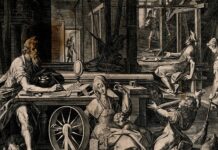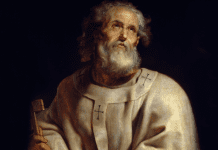There’s this narrative out there that says that science arose in Christian Europe in spite of the antagonism of the religious authorities against reason. It portrays the scientific revolution as the inevitable triumph of reason over superstition.
So that sounds nice enough, but how true is it? Well, one of the first things that stands out for me in considering that is that the rigors of the scientific method did not appear anywhere else in history. No other culture or civilization was able to provide for and encourage the scholarly disciplines enthusiastically enough to produce something as rich as the scientific method.
Really think about that. We’re told that human beings have been employing cognitive thinking for about 50,000 years and it wasn’t until about 500 years ago that we make the last major strides towards something like the scientific method.
And don’t misunderstand that. There had been scientific like inquiry from long before that, but it isn’t the same as a systematic approach to gathering observations and then interpreting that data in a consistently logical way. Other civilizations had mathematics, natural philosophy, and technology, but none of those things amount to anything as complete or rigorous as the scientific method, which only appeared in Christian Europe during the renaissance aided significantly by the Catholic scholastic forerunners.
Based on that knowledge, it should be easy to see that science has not always been some inevitable outcome but, rather, a very elusive step in intellectual inquiry. If Christianity is so incompatible with scientific reason, then how can something that has managed to elude humanity for so long, eventually explode out of backwards, dark age promoting, Christian Europe?
Not only is that a really glaring and uncomfortable refutation of the faith vs science narrative, but it is further frustrated by the fact that the list of people that were essential to the advent of the scientific method, in Europe, were pretty much all Christians working under the patronage of… Church institutions.

















Hi Brian, just watch your video on Christianity led to science: Awesome!!
Keep up your great mission.
God bless and empower you
Brian: nice post but one correction or critique. Galileo was Catholic and remained Catholic all through his house arrest. Two, as Chris Graney has showed in his book “Setting Aside All Authority,” it was the Catholic heirarchy which demanded quantitative proof of heliocentrism which Galileo could not produce. The book does an excellent job explaining why it would be another two centuries of acrid expert debate before definitive observation proof would show heliocentrism was correct. Galileo’s case is a complex one. There is an argument to be made he would not have been treated so harshly had he one, backed down from his stridency, and two, not insulted the pope by comparing him to barnyard animals. I highly recommend Graney’s book and “The Transition to Heliocentricity: The Rough Guides on the Renaissance Mathematicus website, https://thonyc.wordpress.com/the-transition-to-heliocentricity-the-rough-guides/ , for a complete picture of what the history of science fields